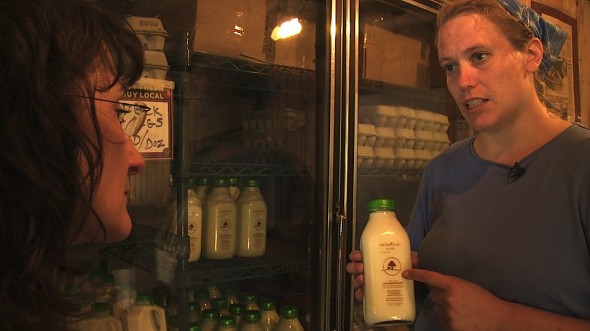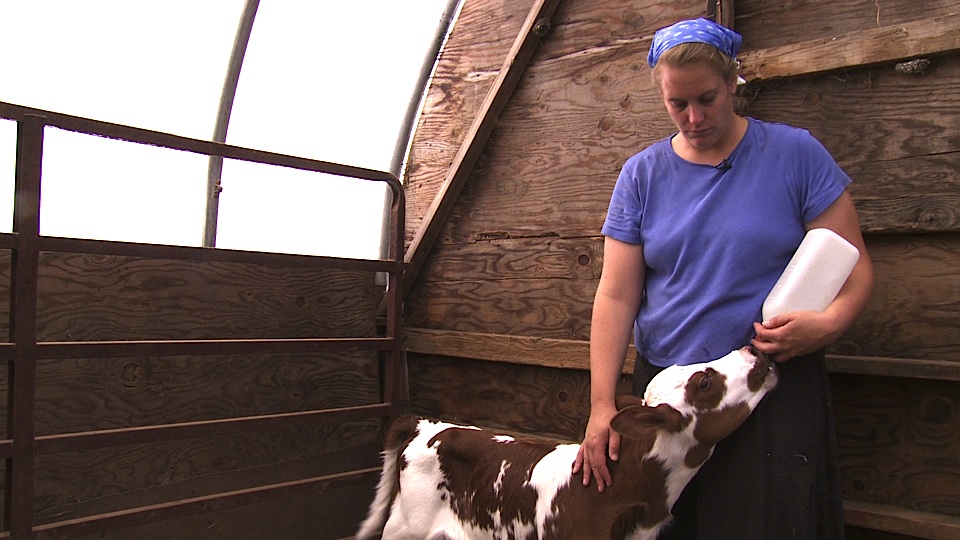On July 11th we visited Terri Lawton on her farm in Foxboro, MA. This three hundred year-old farm, which has been in the Lawton family for generations, is a welcome anomaly in the vicinity of Gillette Stadium.
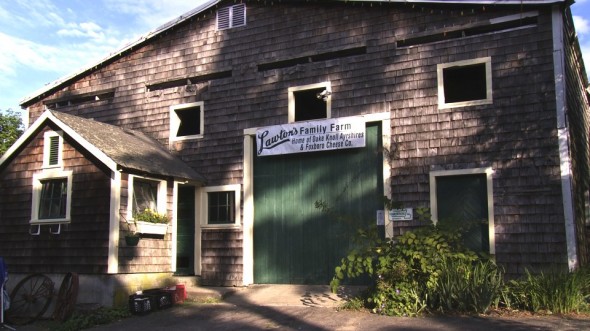
We were privileged to be invited to watch her milk her Ayrshires, a breed quite suited for dairy that originated in Scotland. Getting a closer look at the cows, how they produce milk, and how veal and dairy are two sides of the same coin, brought new perspectives and appreciation.
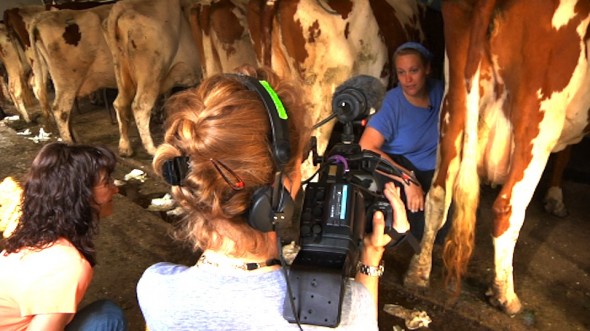
In addition to being devoted to the welfare of each cow, Terri is hyper-diligent about food safety. Before milking, each teat must be sanitized thoroughly.
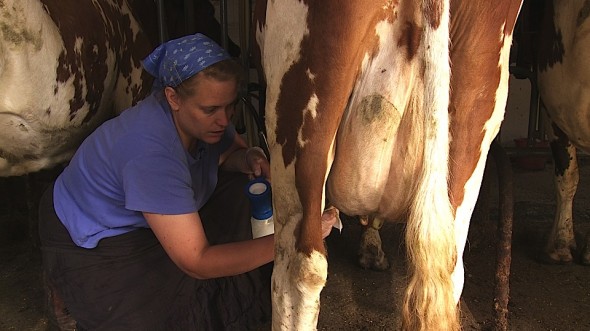
It was fascinating to watch the milking process and how carefully each of the mechanisms were placed on the cows’ udders. The cows were completely comfortable and relaxed through the whole process. No mooing or fussing at all!
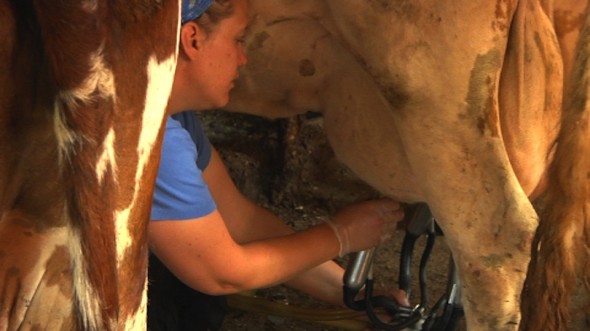
I’m sure the cows were relieved to have the milk gently pumped from their full udders. Watching it flow into these tubes was absolutesly fascinating!
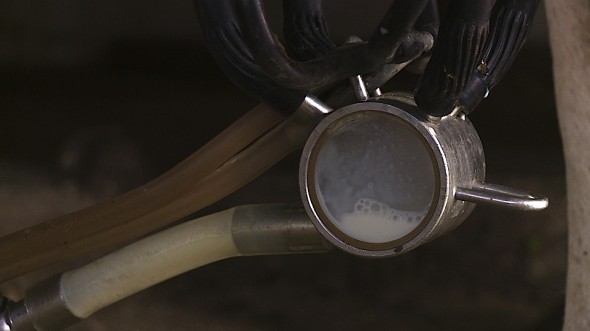
Terri’s cows are milked every morning and evening. The process continues for each cow for about 12 months or so. They are then impregnated again through artificial insemination so they can give birth in order to give milk again. Terri has full control over the genetics of her cows and calves by being able to keep bull semen in a canister with liquid nitrogen. This “bull pen” is actually safer for the cows, since live bulls can cause quite a ruckus in a pasture!
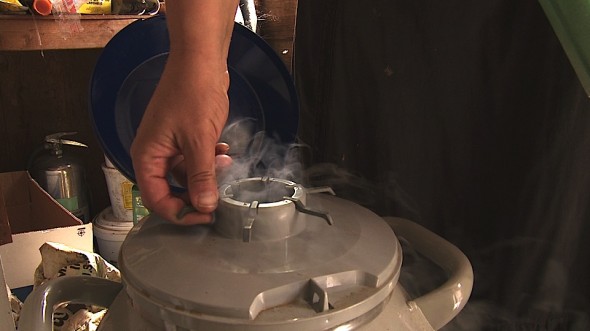
After the calves are born, the males will become veal and the females will most likely stay in Terri’s herd. Whether male or female, these calves are never crated and are allowed to move around freely in pastures. It’s unfortunate that veal is associated with confinement, since so many other farmers, like Terri, would never think about confining their calves in crates. We also learned that the reason calves from these cows are taken away at birth and don’t nurse from them is because of the threat of bacteria transfer to the udder. It’s no problem for calves to nurse directly from their moms if they are being raised for beef. This is why Terri’s calves are fed with a bottle. Their moms are our dairy cows. This little three day-old female Ayrshire will hopefully become one of Terri’s herd.

It was quite obvious to us that Terri’s daily personal contact with her cows makes them happy and easy to be around. They are so curious and friendly. They seem to like people with cameras, as you can see how this one was with David!
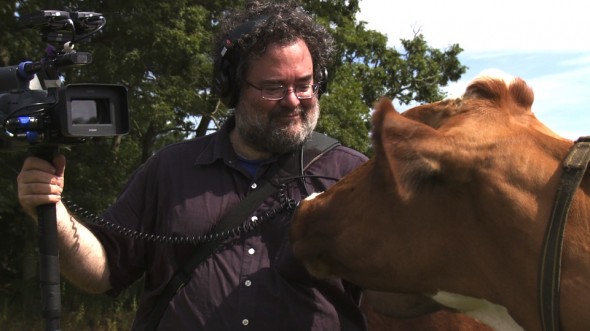
Even the veal calves were comfortable, curious and friendly. At only four months old, I suppose they are too young to understand that they shouldn’t eat shirts. This calf will be veal before the end of summer.
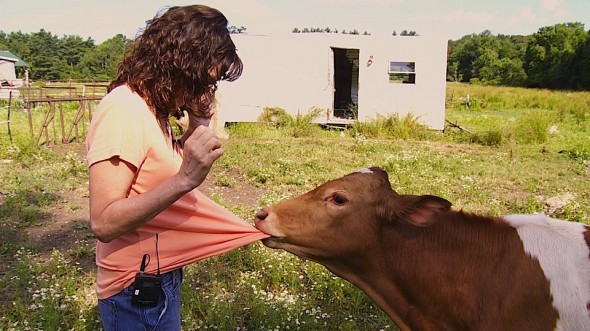
In addition to selling veal through farmers’ markets in the metropolitan Boston area and her storefront, Terri sells raw milk and cheeses from her cows. Terri’s background in animal science helped me to understand the physiological benefits of raw milk.
